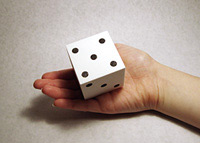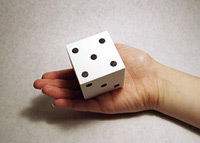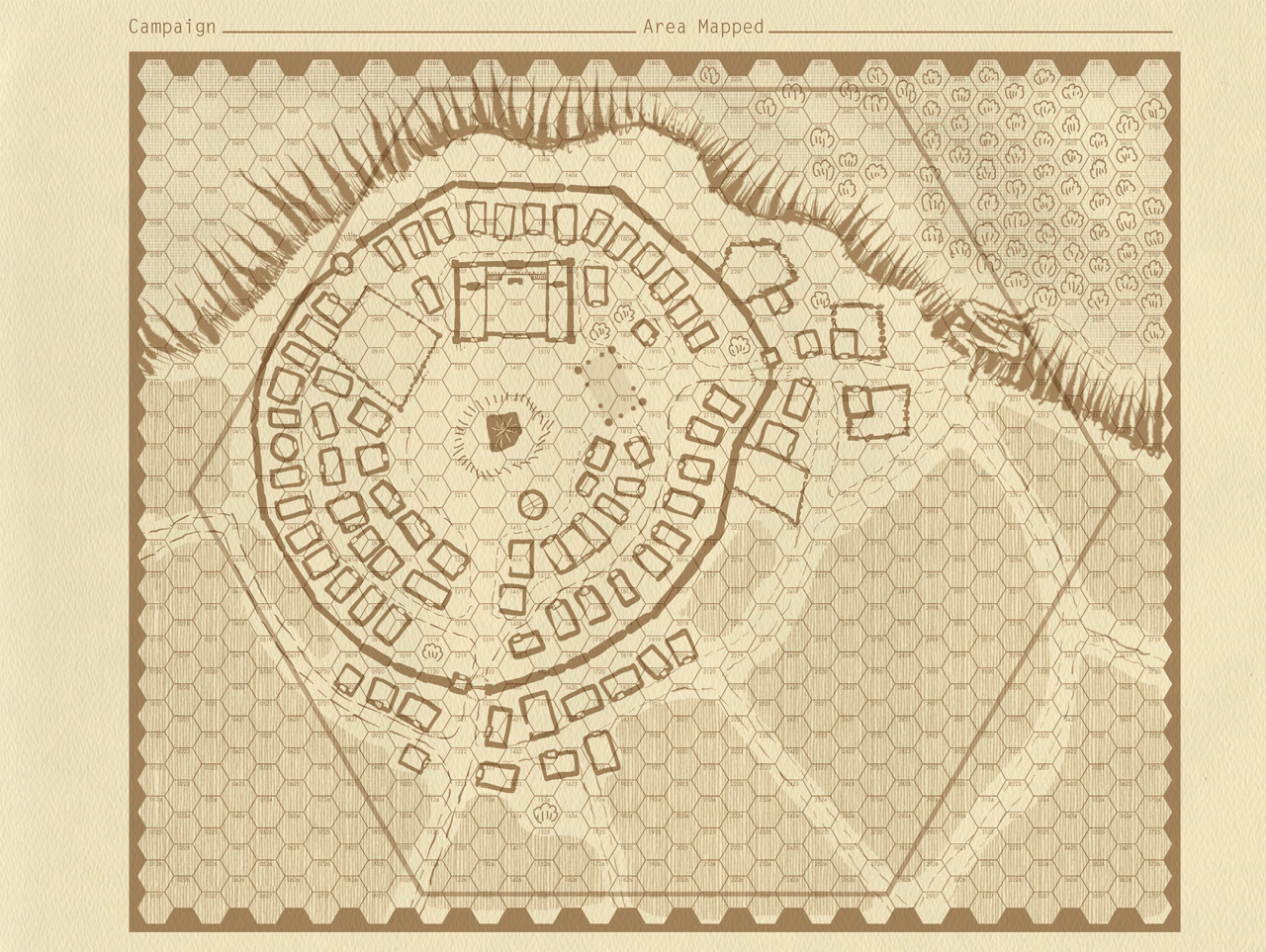Let’s talk about converting OSR/AD&D 1E monsters over for DW.
Let’s talk about converting OSR/AD&D 1E monsters over for DW.
Let’s talk about converting OSR/AD&D 1E monsters over for DW.
Let’s talk about converting OSR/AD&D 1E monsters over for DW.
Let’s talk about converting OSR/AD&D 1E monsters over for DW.
I originally posted this at Lampblack and Brimstone, creators of my favorite Dungeon World variant entitled…

I originally posted this at Lampblack and Brimstone, creators of my favorite Dungeon World variant entitled “Freebooters on the Frontier.” I thought I’d also post it here for discussion by the DW community at large.
Originally shared by Maezar
“PASS THE DIE”
This Friday, I showed Freebooters on the Frontier to yet another a new group of players. Everyone told me they very much enjoyed the game, and there seemed to be strong interest in reconvening. One of the players, a very experienced gamer (who it turns out had in fact been a backer of “The Perilous Wild” 🙂 commented that he very much enjoyed our particular game, comparing it very favorably to Dungeon World “classic” and other games, and pointing out that he especially liked the extent to which each of the players had been involved in the story and the action. We talked specifically about this had occurred in some part due to a technique I use called “passing the die.” I thought I should share it here.
What I do is have players pass a large d6 (or other token) around the table, using it to indicate which of them will be asked to make the next “procedural” move (almost always a “Travel” move). After we resolve that move—and everything that follows directly, the die is passed to the next player.
I proposed—and we adopted—this method after noticing that certain players in each group would “claim” very regular moves that they’d be likely to succeed at. The most wise player is most often chosen to Scout Ahead. The most intelligent player always Navigates. This is fine and well within the fiction, and makes perfect sense, but more rolls means more chances to earn XP. This proved to have a pronounced effect on uneven advancement in our travel-heavy games!
Now, “passing the die” definitely tinkers with the core mechanic of Dungeon World, so I’d like to state at the onset of any discussion that my groups tend towards “collaborative improvisation.” In this style, players tend to agree that it’s OK to share control, at least to the extent that it enhances everyone’s enjoyment.
So if “the die” (or the shell, or the plastic unicorn, or whatever) indicates which player will be in the spotlight—either during the day’s travels, or on watch, or during whatever open-ended (passive, procedural) situation arises, play also passes around the table. This could be “SCOUT AHEAD” or “NAVIGATE” or “MAKE CAMP” or “STAY SHARP”, “MANAGE PROVISIONS”, “MAKE A SAVING THROW”, or whatever move seems appropriate. I’ll then tailor the fiction so it asks for the required move from the player holding the die.
To be clear, the turn-by-turn cycling does NOT necessarily mean—in the fiction or otherwise—that the “best” character isn’t really the one conducting an activity they are clearly best at. Rather, we use the fiction to focus on our “surrogate” while leaving room for other actors and agents to carry on however they imagine.
In many cases I will ask the player with the die to tell me how they become pivotal in the move of the moment. If they need help, we’ll come up with something together.
Here’s an example for SCOUT AHEAD: “As the others talk (and talk and talk) about what the scout found (or didn’t find) you [impetuous thief] grow tired of waiting and wander away to look again over the valley below. Roll +WIS to see if you notice anything out of the ordinary.”
Here’s an example for NAVIGATE. “While planning the route, there is some disagreement about which way is best. As it happens, eyes somehow turn to you [dim warrior] to cast the deciding vote. Roll+INT and let’s see what happens next…”
Here’s one for MANAGE PROVISIONS: “Have you noticed that every night this priestess cooks the same bland Northern-style food? When she asks you to watch the pot, you [clever mage] decide to ‘tweak’ the recipe a bit. Let’s see how THAT goes… Roll +WIS.”
So, as I’ve said, this method is working great for us. Dungeon World is already very good at distributing XP during typical RPG combat situations, where each character’s beefy “prime requisite” score results in lots of successes, plenty of narrative advances, and regular-enough failure. Here, the chances to roll for more individual moves are shared as well. In a sense, “non-combat fun” is also therefore more evenly shared. Aside from these mechanical aspects, I find that the play style which emerges reflects the micro-push-and-pull of real life character-driven situations in a fun and familiar way.
So that’s how and why we pass the die.
If there’s interest, I’ll post more of my thoughts on this, covering how I sometimes (objectively) ask players to use an ability that is NOT specifically the one mentioned in a given move, or how I try to “forge the fiction of failure” around the kinds of character substitutions that occur.
“PASS THE DIE”

“PASS THE DIE”
This Friday, I showed Freebooters on the Frontier to yet another a new group of players. Everyone told me they very much enjoyed the game, and there seemed to be strong interest in reconvening. One of the players, a very experienced gamer (who it turns out had in fact been a backer of “The Perilous Wild” 🙂 commented that he very much enjoyed our particular game, comparing it very favorably to Dungeon World “classic” and other games, and pointing out that he especially liked the extent to which each of the players had been involved in the story and the action. We talked specifically about this had occurred in some part due to a technique I use called “passing the die.” I thought I should share it here.
What I do is have players pass a large d6 (or other token) around the table, using it to indicate which of them will be asked to make the next “procedural” move (almost always a “Travel” move). After we resolve that move—and everything that follows directly, the die is passed to the next player.
I proposed—and we adopted—this method after noticing that certain players in each group would “claim” very regular moves that they’d be likely to succeed at. The most wise player is most often chosen to Scout Ahead. The most intelligent player always Navigates. This is fine and well within the fiction, and makes perfect sense, but more rolls means more chances to earn XP. This proved to have a pronounced effect on uneven advancement in our travel-heavy games!
Now, “passing the die” definitely tinkers with the core mechanic of Dungeon World, so I’d like to state at the onset of any discussion that my groups tend towards “collaborative improvisation.” In this style, players tend to agree that it’s OK to share control, at least to the extent that it enhances everyone’s enjoyment.
So if “the die” (or the shell, or the plastic unicorn, or whatever) indicates which player will be in the spotlight—either during the day’s travels, or on watch, or during whatever open-ended (passive, procedural) situation arises, play also passes around the table. This could be “SCOUT AHEAD” or “NAVIGATE” or “MAKE CAMP” or “STAY SHARP”, “MANAGE PROVISIONS”, “MAKE A SAVING THROW”, or whatever move seems appropriate. I’ll then tailor the fiction so it asks for the required move from the player holding the die.
To be clear, the turn-by-turn cycling does NOT necessarily mean—in the fiction or otherwise—that the “best” character isn’t really the one conducting an activity they are clearly best at. Rather, we use the fiction to focus on our “surrogate” while leaving room for other actors and agents to carry on however they imagine.
In many cases I will ask the player with the die to tell me how they become pivotal in the move of the moment. If they need help, we’ll come up with something together.
Here’s an example for SCOUT AHEAD: “As the others talk (and talk and talk) about what the scout found (or didn’t find) you [impetuous thief] grow tired of waiting and wander away to look again over the valley below. Roll +WIS to see if you notice anything out of the ordinary.”
Here’s an example for NAVIGATE. “While planning the route, there is some disagreement about which way is best. As it happens, eyes somehow turn to you [dim warrior] to cast the deciding vote. Roll+INT and let’s see what happens next…”
Here’s one for MANAGE PROVISIONS: “Have you noticed that every night this priestess cooks the same bland Northern-style food? When she asks you to watch the pot, you [clever mage] decide to ‘tweak’ the recipe a bit. Let’s see how THAT goes… Roll +WIS.”
So, as I’ve said, this method is working great for us. Dungeon World is already very good at distributing XP during typical RPG combat situations, where each character’s beefy “prime requisite” score results in lots of successes, plenty of narrative advances, and regular-enough failure. Here, the chances to roll for more individual moves are shared as well. In a sense, “non-combat fun” is also therefore more evenly shared. Aside from these mechanical aspects, I find that the play style which emerges reflects the micro-push-and-pull of real life character-driven situations in a fun and familiar way.
So that’s how and why we pass the die.
If there’s interest, I’ll post more of my thoughts on this, covering how I sometimes (objectively) ask players to use an ability that is NOT specifically the one mentioned in a given move, or how I try to “forge the fiction of failure” around the kinds of character substitutions that occur.
I got an iPad pro and wanted to try my hand at mapmaking, so last night I drew this map of “Stonetop” in the style…

I got an iPad pro and wanted to try my hand at mapmaking, so last night I drew this map of “Stonetop” in the style of my favorite Judges Guild products. It’s a first attempt, and I will improve but I thought you might enjoy! it anyway.
In my games of Freebooters on the Frontier, we use flat glass beads to keep track of FAVOR, METTLE, SPELL POWER, and…
In my games of Freebooters on the Frontier, we use flat glass beads to keep track of FAVOR, METTLE, SPELL POWER, and CUNNING. I made this sheet for Mage players so they can distribute and re-allocate available spellcasting energy right on the table. http://www.mysticworks.com/freebooters/downloads/Maezar-Mage-Spell-Sheet.pdf
http://www.mysticworks.com/freebooters/downloads/Maezar-Mage-Spell-Sheet.pdf
http://www.mysticworks.com/freebooters/downloads/Maezar-1-page-Freebooters-Sheets-HR.pdf
http://www.mysticworks.com/freebooters/downloads/Maezar-1-page-Freebooters-Sheets-HR.pdf
Having tested my sheets across perhaps 12 sessions with four groups of players from all types of backgrounds, I have reduced my Freebooters character sheets to a single “super compact” page (8.5″ x 11″) per class. My goal was to produce something that eliminates shuffling or flipping of papers, gives first-timers less to read and remember, and evokes a familiar character sheet feel.
At my table, Advanced moves are now handled with CARDS so I’ve left a place for the player to record their selections. This is really working out great and I will share the set when it is finished.
I am sure there will be further changes and additions, but I wanted to share these with you here. Here’s a quick review of my house rules/modifications:
1) I lowered/simplified LEVEL UP requirements to LEVEL x5 XP. This is partly due to the elimination of the “Bank It” since treasure is not the main focus of our games. I also award a reduced maximum of 3 XP at end of session — one each for ROLE PLAYING (Class, Alignment, Traits), one for WORLD BUILDING , and one for STORY DEVELOPMENT.
2) There are damage die limits per class, per classic DW. I have yet to explore how the multi-class moves will impact this limit, but my thought is that a single advanced move may not be able to remove a given limit altogether, perhaps instead upping it by one die type (ex: d4->d6)
3) Various modifications to the CLERIC class starting moves and TEST OF FAITH table. Clerics also have the option to select WISDOM or CHARISMA as the basis of FAVOR and BASIC MOVES. PS: I’ve been fortunate to have a lot of clerics in my games — at least one or two at every table!
4) Thieves have the option to choose DEX or INT as the basis of their CUNNING and BASIC MOVES.
5) I removed Race/Heritage and Alignment details from the sheet in favor of blank areas to record details created collectively at the table.
6) I added a big area for NOTES since my players were keeping yet another sheet of paper in addition to my 2-sided tabloid sheets.
That’s it for now!
http://www.mysticworks.com/freebooters/downloads/Maezar-1-page-Freebooters-Sheets-HR.pdf
http://www.mysticworks.com/freebooters/downloads/Maezar-1-page-Freebooters-Sheets-HR.pdf
Hex Paper!
Hex Paper! Have fun. Today, someone in another community reminded me of these and I thought I’d share. I created them a long time ago for a Judges-Guild-style Perilous Hex Crawl.
At one point, I think I may have seen a version of the Perilous Wilds survival kit that was formatted for 8 1/2 x 11…
At one point, I think I may have seen a version of the Perilous Wilds survival kit that was formatted for 8 1/2 x 11 paper (one sheet per page, vertically) or I may be dreaming…
Having played 20+ sessions of Freebooters, I feel like imposing some basic class-based weapon and armor restrictions…
Having played 20+ sessions of Freebooters, I feel like imposing some basic class-based weapon and armor restrictions a la D&D, OR, limit the maximum weapon damage for each class a la Dungeon World, and maybe have the “Clumsy” armor penalty bump to -2 for non-fighters.
Can anyone point me to where “getting the drop” is defined in the DW rules?
Can anyone point me to where “getting the drop” is defined in the DW rules? The only thing I’ve ever found is “The best fight for you is one where you have the drop—since hack and slash is triggered by attacking in melee, and a defenseless enemy isn’t really in melee, the move won’t trigger—you’ll just bury a weapon or spell in their back and deal your damage.”